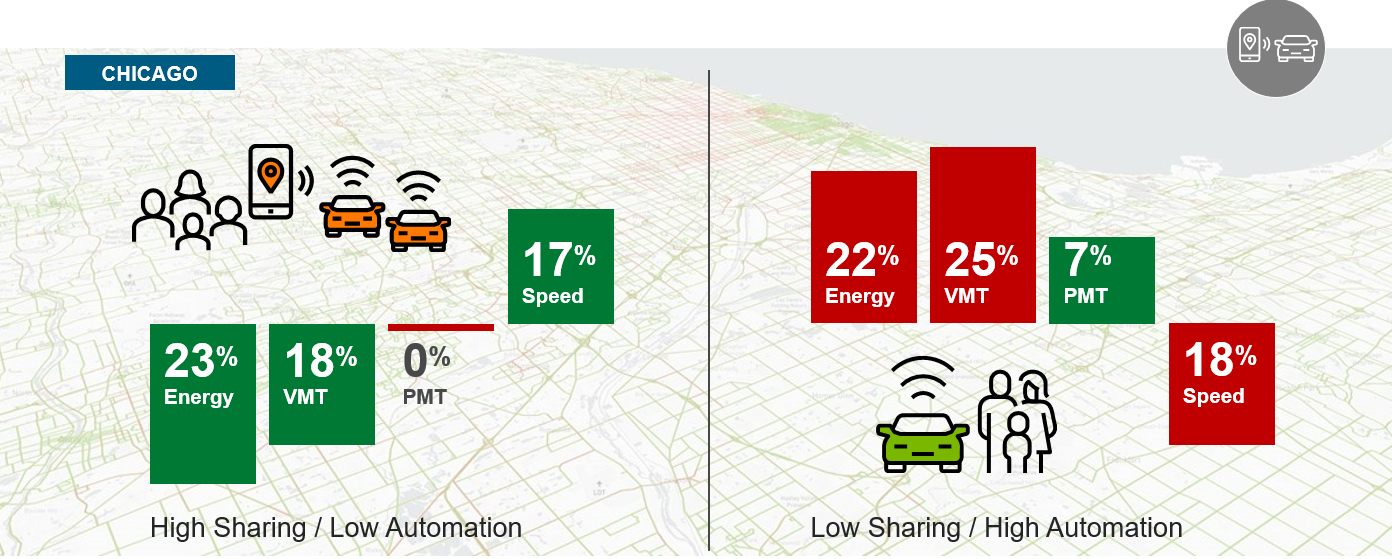Shared Connected and Automated Vehicles Enable High System Efficiency
Published: 2021 November
High sharing/low automation leads to approximately 20% energy savings, compared to approximately 20% energy increase for low sharing/high automation scenarios.
A comprehensive study of the Chicago metropolitan area indicates that a 50 percent penetration of personally owned, highly automated vehicles may increase vehicle miles traveled (VMT) by up to 25 percent, increasing highway congestion and reducing system efficiency. However, wide adoption of ride-sharing in this highly automated future could mitigate these negative impacts, reducing VMT by 18 percent, reducing congestion, and improving system efficiency by 44 percent, in terms of productive miles of travel per unit of energy.

For additional information, you can read and download the SMART Mobility Modeling Workflow Development, Implementation, and Results Capstone report.
Related Expertise
Travel Demand Modeling
Transportation Supply Modeling
Freight Modeling
SMART Mobility Workflow
Vehicle Energy Consumption and Cost
Related Tools
Contact
Josh Auld, [email protected]